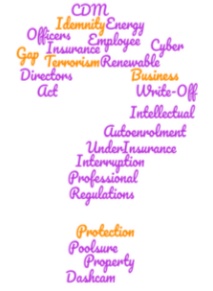
Working from home is risky. Not just the temptations from the fridge, the odds of a domestic or kids trying your patience but the chance you will be scammed.
…Cyber-attacks increased significantly when we went into lockdown as cyber criminals looked to take advantage of the uncertainty and confusion caused by the coronavirus pandemic. In particular, firms with people working from home became prime targets.
Whilst some firms have had their staff set up to work from home for years, for many, the switch to home working was the first experience of remote working and with very little notice, not all firms have been able to introduce the same security measures as they have at their premises.
The use of personal computers, insecure wi-fi connections and lack of training as to computer security has meant that basic security practices such as software updates and antivirus scans are not being performed. Certain video conferencing software has also been shown to be a vulnerability and when problems do occur, there may also be difficulties with IT departments gaining remote access to investigate potential infections etc.
In some cases, it was a choice of taking a ‘bit of a chance’ or not being able to work and perhaps that was understandable given the unprecedented situation, although there has been concern in some circles that ‘chances’ were being taken in some higher risk sectors including finance and share dealing.
The criminals have looked to exploit these weaknesses, particularly phishing scams to lure people into providing their information. Examples of scams include the imitation of organisations such as the Government with the pretence of issuing fines to those who have broken lockdown protocol or offering financial recompense for the disruption caused by the pandemic. ‘Dodgy’ emails can be very realistic, and scammers have also capitalised on the more cumbersome and time-consuming communication faced by some firms during lockdown, particularly in accounts departments.
It is not just phishing scams; cyber-attacks have increased in many areas including cloud services and banking or other online payment apps. Insurers providing Cyber Policies are obviously concerned about the increase and whilst attacks may reduce as life returns to some sort of normality, there is still the worry of increased Chinese and Russian hacking activity following the various recent political spats.
Aside from cyber: the better news is that other crime reduced during lockdown. With fewer people venturing out after dark, the criminal fraternity soon realised they ‘stood out’ when they did and were much easier for the Police to detect. However, as we have come out of lockdown some products have become more sought after and therefore nickable with thefts on the increase. Bikes and dogs have become very popular.
And the quieter roads were also generally a good thing for insurers. There were fewer accidents, but unfortunately some boy racers took the opportunity to use the lockdown roads as racetracks and the emergency services had to deal with a few nasty accidents.


Recent Comments